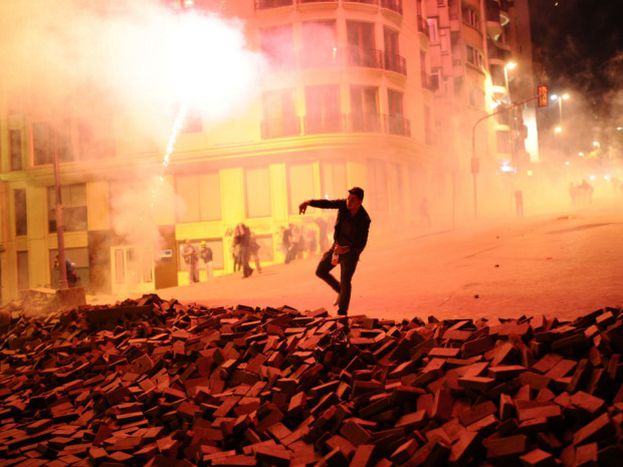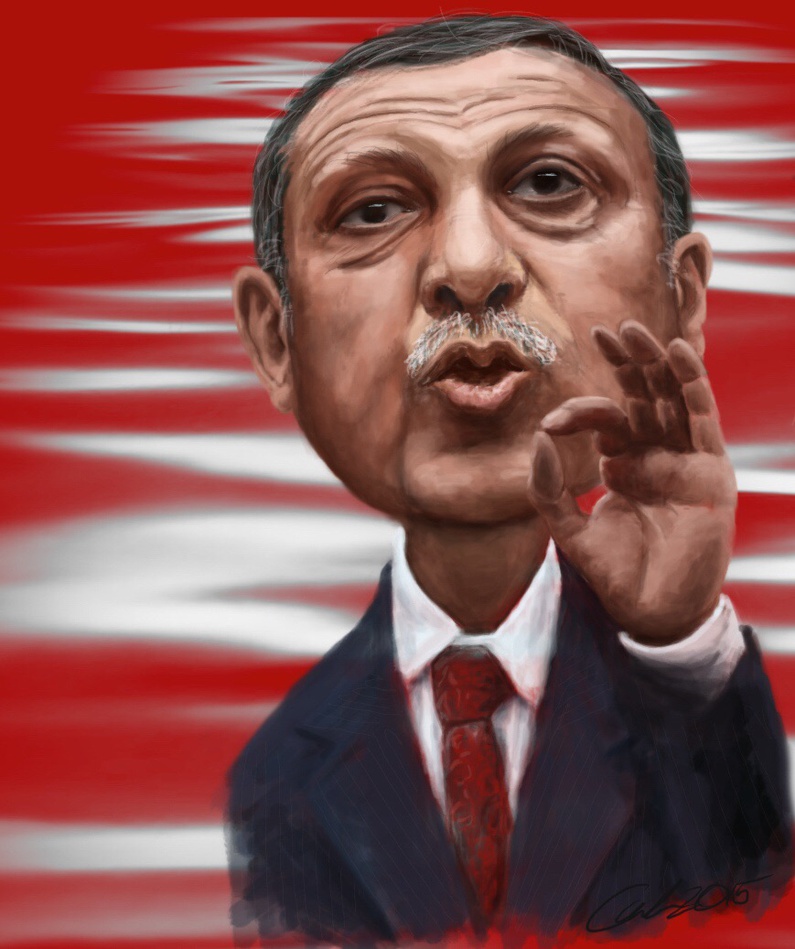
What about Human Rights in the current political crisis in Turkey?
Published on
Human Rights could be a key element for the future of EU-Turkey relationships. It is therefore essential to understand what is really happening in Turkey today.
On July 15th, soldiers attempted a coup against Recep Tayyip Erdogan and the government, in Turkey. However, this coup resulted in a failure and the national authorities reacted with purges and a state of emergency. To understand to which extent this political crisis affected Human Rights, we interviewed Hayet Zeghiche, Communications Director at EuroMed Rights, an NGO which promotes Human Rights in the Euro-Mediterranean region. Interview.
CaféBabel - What was the concrete impact of the failed coup on the Human Rights in Turkey?
Hayet Zeghiche - So far, we’ve documented around 50,000 public officers who have been suspended from their offices and numerous private schools, foundations and universities were taken over by the government. Similarly, tens of associations and media outlets were closed down. All people arrested must be granted their rights enshrined in international law and Turkish authorities should be held accountable for their safety and protection. Investigations must be conducted in a manner that respects the rule of law. Critical voices must retain the right to expression in public spaces.
Did the coup result in an exceptional repression in the whole society?
We are obviously concerned after reports of violent and indiscriminate reactions by the Turkish government. We feel it has targeted the military and the judiciary, with the hasty arrest of several thousands of people allegedly involved in the coup, but also journalists, lawyers, NGOs and other critical voices, including a blanket ban on travel for academics.
What EuroMed Rights and its member organisations based in Turkey say is that: Although the perpetrators must be brought to justice (following an independent, impartial, thorough and prompt investigation), their prosecution should comply with international fair trial standards and the presumption of innocence must be respected. People for whom there is no evidence of wrongdoing should not be victim of baseless investigations and restrictive measures.
 In the framework of State of emergency, Turkey will derogate from the provisions of the ECHR. What do you fear regarding this derogation?
In the framework of State of emergency, Turkey will derogate from the provisions of the ECHR. What do you fear regarding this derogation?
What we fear is the fact that the state of emergency allows the president and the Council of Ministers to rule by decree, therefore bypassing the parliament and undermining democratic standards. It also “partially or entirely” suspends the exercise of Human Rights and fundamental freedoms, including Turkey’s obligations under the European Convention on Human Rights.
Are the minorities and the dissidents more vulnerable because of the purges?
The failed coup attempt comes in a context of serious continuing violations of Human Rights and the rule of law by the authorities in Turkey. EuroMed Rights has documented steady restrictions to the right to freedom of expression and media freedom, stripping of immunity and threats of prosecution of the parliamentary opposition, criminalisation of dissent, plans to concentrate the power in the hands of the president, willingness to turn religion as a weapon of government and implementation of a violent repression in the south-east. We fear that it is dissent and critical voices that are being targeted here.
During this failed coup, Erdogan seemed to have the support of the people. Do Turkish citizens care more about safety than freedom, today?
EuroMed Rights feels it has no mandate to speak on behalf of the people of Turkey.
What do you expect from the European Union and from the International Community in this context?
We call on the international community, in particular the EU, to remain vigilant and urge Turkey to act in compliance with its international Human Rights obligations. Geopolitical interest should not prevail over the respect for the rule of law and Human Rights.
In the framework of terrorist attacks and refugee crisis, do you fear that the EU institutions and the Western countries turn a blind eye to Human Rights violation?
We hope not. Stability can only be restored by upholding Human Rights and the rule of law. The Turkish government should display a strict respect for the principles of legality, necessity and proportionality. It should abide by its international Human Rights commitments at all times. The discussion over the reintroduction of the death penalty for alleged coup plotters and the project to amend the constitution are another source of concern for the future of Human Rights in Turkey. According to international Human Rights law, security measures can be taken in a situation of crisis, though only as a continuation of the rule of law.
How do EuroMed Rights and the other NGOs act before the EU institutions?
EuroMed Rights is a network made up, and driven by, its members. All our members are Human Rights organisations deeply rooted in their respective countries. Ever since 1997 that saw our creation, we have been one of the few settings in the region where organisations from the North and the South can meet on an equal basis to exchange and carry out joint policy actions.
At its core, EuroMed Rights ensures that its members’ policies and recommendations ‘feed into’ the policies and practices of the EU institutions, EU member states and South and East Mediterranean partners. We do that through sustained advocacy work from Brussels. But, and in equal measures, we provide vital support our members in their own advocacy work at the national and regional levels.
So in a nutshell, EuroMed Rights does not implement or finance projects on the ground per se (this is our members’ remit) but rather ccomplements the work done on the field. Our added value lies in the fact that we bring our members together when opportunities for networking are either scarce or exceptionally strained. We work on themes that harbour both local and regional dimensions. Our members also tap into our long-drawn expertise on how relationships between the EU and its Southern Neighbourhood can both help and shape their work.



